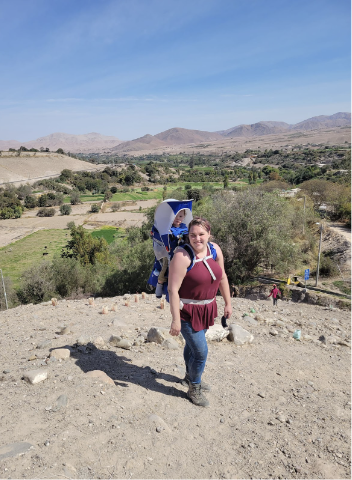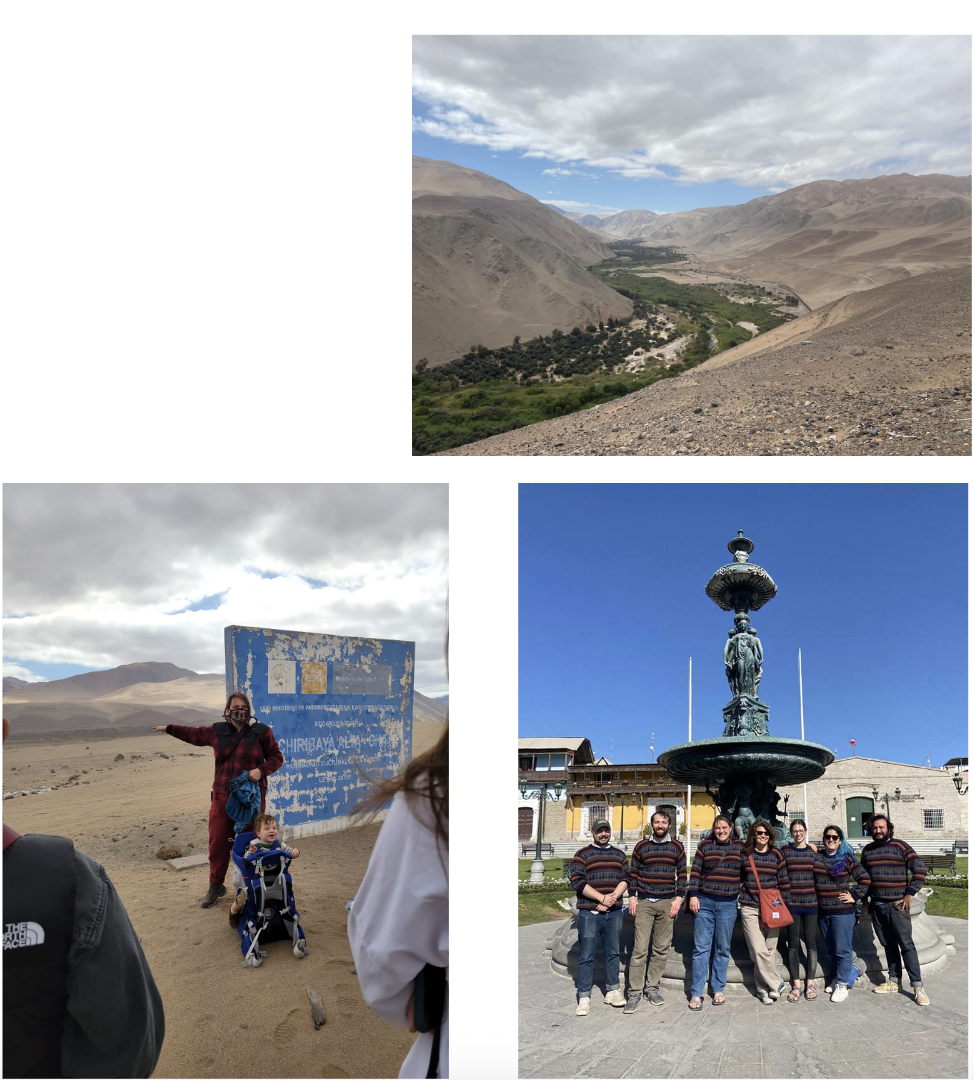Lecturer Stories
We interviewed one of our teaching lecturers, Dr. Schach, to share more about the courses they teach and their personal research with us for this year’s newsletter.

Dr. Emily Schach
Dr. Emily Schach is a bioarchaeologist who conducts research regarding intersectional social identities in the pre-contact Peruvian Andes. She completed her Ph.D. at Arizona State University in 2019. Dr. Schach is the co-director of the Yaracachi Archaeological Project and Field School with Dr. Donna Nash. She is currently a lecturer of biological anthropology at UCSC.
- What courses do you teach on campus? Which is your favorite?
I currently teach five courses in the Anthropology department. These are, ANTH 1: Introduction to Biological Anthropology, ANTH 102A: Human Skeletal Biology, ANTH 103: Forensic Anthropology, and ANTH 105: Human Paleopathology. Next year I will teach a new course, The Anthropology of Dead Persons.
My favorite course to teach is Human Skeletal Biology because I get to help students develop a tangible skill over the course of the quarter. It is very satisfying to see students improve over the quarter!
- Can you tell us about your current research project and how it contributes to the field of anthropology?
My current research project concerns the nature of social identities across multiple community groups in the Moquegua Valley of Peru. My goal is to demonstrate the complexity of social identities in the past to challenge western notions regarding gender and age. I apply theoretical approaches traditionally used in modern contexts to bring the past into conversation with our present societal struggles regarding gender flexibility.
- How do you involve undergraduate students in your research projects, and what benefits do you see for them?
I like to involve undergraduate students in my research projects, especially at my field project in Moquegua, Peru. I try to develop independent projects with a few students so that they can become familiar with the research process. Anthropological research is incredibly rewarding, and I really enjoy seeing students build their skills as they complete a research project.
- How has your research changed or evolved over time?
Over time, my research has begun to ask broader questions regarding the nature of human social identities in the past. I began by analyzing social identities at a single archaeological site with a single archaeologically identified culture. I have since moved on to a much more complex site, which contains multiple communities for a broader perspective on social identities.
- Can you describe a particularly memorable experience you've had while conducting fieldwork or lab work for your research?
One of my most memorable experiences occurred during my dissertation research when I analyzed an individual from Chiribaya Alta. I noticed a lot of porosity on the frontal bone, and then when I turned the skull, I saw the tell-tale signs of a treponemal disease—caries sicca. These are a family of diseases that include venereal syphilis. It is incredibly rare to see caries sicca in American contexts! Another memorable experience was when I was analyzing hairstyles, and my Peruvian assistant was excited because some of the females were buried with the same hairstyle as her grandmother.
- What advice would you give to students interested in pursuing research or ethnographical work in anthropology?
I advise students to seek out field or laboratory research experiences to get hands-on experience with anthropological research. Various field schools and research experiences are available around the globe. Don't be afraid to ask professors for personalized advice!
- Can you speak to the challenges and rewards of conducting research or ethnographical work both on and off campus?
Research can be incredibly challenging because there are many moving parts, especially when running a field project in a foreign country. Despite these challenges, I love conducting research and collecting data! Completing the relatively mundane task of collecting data and then using these data to make conclusions about the past is an incredible experience.
- Is there anything else you would like to share about your experience as an anthropology professor and researcher?
Anthropology has a lot to say about human diversity in the past and present. I think the critical thinking skills and broad perspective embraced by anthropologists are valuable to undergraduate students, whether they plan on becoming practicing anthropologists or not!

Thank you to Zoe Shmidt, Peer Advisor in the Anthropology Department, for interviewing Dr. Schach. Thank you to Emily for taking the time to share their story through these interview questions!
